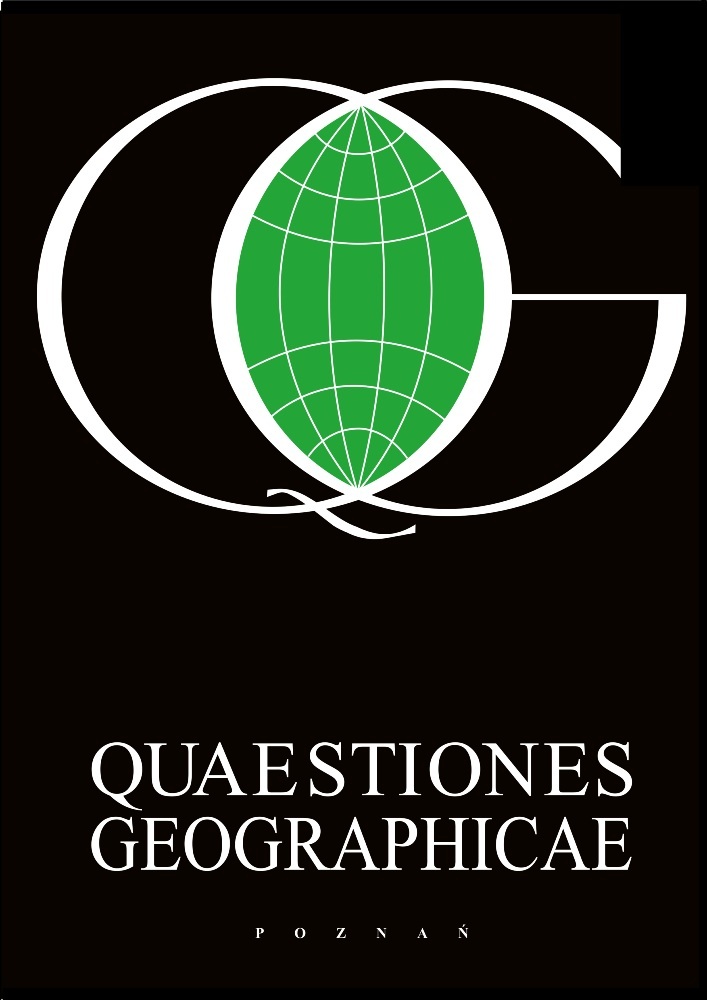Abstract
This paper seeks to present organisational and programme assumptions of a new field of postgraduate studies called Cultural industries in the development policies of cities and regions, prepared by a team of workers of the Institute of Socio-Economic Geography and Spatial Management of Adam Mickiewicz University in Poznań as a didactic innovation based on a modular system of education that meets contemporary changes in the labour market. The analysis will also embrace experiences following from the educational process implemented under the Human Capital Operational Programme in the years 2013–2015 (Priority IV: Tertiary Education and Science, Measure 4.3: Enhancing the didactic potential of universities in areas of key importance for the Europe 2020 Strategy). They provide a basis for conclusions and recommendations for higher schools interested in the development of this area of education.
References
Bloom B.S., Engelhart M.D., Furst E.J., Hill W.H., Krathwohl D.R., 1956. Taxonomy of educational objectives: The classification of educational goals. Handbook I: Cognitive domain. David McKay Company, New York.
Boschma R.A., Fritsch M., 2009. Creative class and regional growth. Empirical evidence from seven European countries. Economic Geography 85 (4): 391–423.
Churski P., 2013. Modułowy program kształcenia – szansa na podniesienie jakości kształcenia na kierunku gospodarka przestrzenna (Modular programme of instruction: a chance to raise the quality of education in the Spatial Management field of study). In: Churski P., Kudłacz T. (eds), Gospodarka przestrzenna – doświadczenia i wyzwania procesu kształcenia. Biuletyn KPZK PAN, vol. 251, Warsaw: 9–23.
Churski P., Motek P. (eds), 2013. Przemysły kultury w polityce miast i regionów. Program kształcenia studiów podyplomowych (Cultural industries in the development policies of cities and regions. The syllabus of postgraduate studies). Institute of Socio-Economic Geography and Spatial Management, Adam Mickiewicz University, Poznań.
Europe 2020. The EU strategy for smart, sustainable and inclusive growth. Commission’s Communication, COM (2005) 2020. 3 March 2010, Brussels.
Florida R., 2002. The rise of the creative class and how it’s transforming work, leisure, community and everyday life. Basic Books, New York.
Florida 2005. Cities and the creative class. Routledge, New
Klasik A., 2010. Rola sektora kultury i przemysłów kreatywnych w rozwoju miast i aglomeracji (Role of the cultural sector and creative industries in the development of cities and agglomerations). Uniwerytet Ekonomiczny, Katowice.
Próchnicka M., Saryusz-Wolski T., Kraśniewski A., 2011. Projektowanie programów studiów i zajęć dydaktycznych na bazie efektów kształcenia (Designing programmes of study and classes on the basis of educational effects). In: A. (ed.), Autonomia programowa uczelni. Ramy kwalifikacji dla szkolnictwa wyższego. Project National Qualifications Framework in tertiary education as a tool for improving the quality of education, Priority IV PO KL, Measure 4.1., Sub-measure 4.1.3., Ministry of Science and Higher Education, Warsaw.
Skinner, B.F., 1960. Teaching machines. In: Lumsdaine A.A., Glaser R. (eds), Teaching machines and programmed learning. National Education Association, Washington.
Skinner B.F., 1971. Beyond freedom and dignity. Hackett Publishing Company, Indianapolis.
Stryjakiewicz T., 2008a. Regiony kreatywnej wiedzy – zarys międzynarodowego projektu badawczego ACRE (Creative knowledge regions: an outline of the ACRE international research project). In: Stryjakiewicz T., Czyż T. (eds), O nowy kształt badań regionalnych w geografii i gospodarce przestrzennej. Biuletyn KPZK PAN, vol. 237: 129–145.
Stryjakiewicz T., 2008b. Rozwój sektora kreatywnegow regionach metropolitalnych (Development of the creative sector in metropolitan areas). In: Parysek J.J.,Stryjakiewicz T. (eds), Region społeczno-ekonomiczny i rozwój regionalny. Bogucki Wydawnictwo Naukowe, Poznań: 105–119.
Stryjakiewicz T., 2010. Location factors of the creative and knowledge-intensive industries in European metropolitan regions. Geograficky Časopis 62/1: 3–19.
Stryjakiewicz T., 2011. Rola sektora kreatywnego w rozwoju miast i regionów (Role of the creative sector in the development of towns and regions). In: Marciniak K., Sikora Sokołowski D. (eds), Koncepcje i problemy badawcze geografii. Wyższa Szkoła Gospodarki, Bydgoszcz: 407–418.
Stryjakiewicz T., Kaczmarek T., Męczyński M., Parysek J.J., Stachowiak 2010. Polityka wspierania rozwoju sektora kreatywnego w poznańskim obszarze metropolitalnym na tle doświadczeń zagranicznych (Policy of support for the development of the creative sector in the Poznań metropolitan area in the light of foreign experiences). Bogucki Wydawnictwo Naukowe, Poznań.
Stryjakiewicz T., Męczyński M., 2010. Atrakcyjność poznańskiego obszaru metropolitalnego dla pracujących w sektorze kreatywnym (Attractiveness of the Poznań metropolitan area to workers of the creative sector). Poznań: Bogucki Wydawnictwo Naukowe.
Stryjakiewicz T., Stachowiak K., 2010. Uwarunkowania, poziom i dynamika rozwoju sektora kreatywnego w poznańskim obszarze metropolitalnym (Determinants, level and dynamics of the development of the creative sector in the Poznań metropolitan area). Bogucki Wydawnictwo Naukowe, Poznań.
Szafraniec K., 1994. Projektowanie kształcenia i doskonalenia zawodowego dorosłych opartego o koncepcję modułów kwalifikacyjnych. Kształcenie modułowe (Designing adult education and refresher courses based on the conception of qualification modules. Module-type of instruction). ZG ZZDZ, Warsaw.
License
© Faculty of Geographical and Geological Sciences, Adam Mickiewicz University.
This work is licensed under the Creative Commons Attribution-NonCommercial-NoDerivatives 3.0 License.
